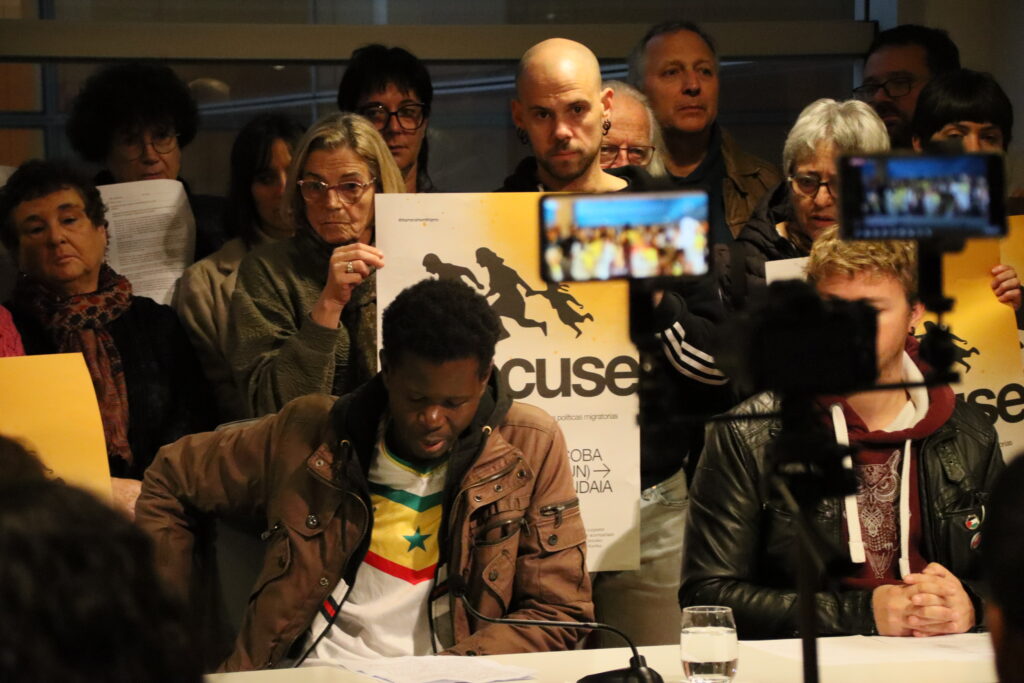
- In the framework of the collective J´accuse [Salatzen dut], different agents have gathered to show their solidarity with the seven activists who will be tried for channelling the help to 36 immigrants to cross the border. The demonstration will take place on 26 January in Irun, from Ficoba to Hendaia, that is, two days before the trial.

"We don't accept judgment. What needs to be judged is not solidarity, nor those who work for the rights of all people. The brutal and murderous immigration policies, the authorities responsible for these racist and unfair borders and the laws must be punished," said the citizens united in the new collective J’accuse. At the press conference on Wednesday, they reported on the "self-indictment campaign" against racist immigration policies and solidarity with the seven activists to be tried in Baiona. "Today we will do the first self-incriminations and in the coming weeks we intend to bring thousands of people together," he added. Seven people were arrested on 2 October for cooperating at the border crossing between Irun and Hendaia because of the Korrika. The document to be signed for self-accusation has been included in the following link: here.
Demonstration on 26 January
In the same way, on 26 January they will hold a demonstration between Ficoba and Hendaia in Irun: "Euskal Herria has always been and will continue to be a territory of reception, immigration, emigration, reception, reception and emigration. We demand the right to carry out free and safe migration processes". Three clear demands will be made public:The end of the repressive immigration policy of the Fortress Europe; the repeal of the French Government's Immigration Act and the final opening of borders.
Eight months ago, thirty agents appeared in Ficoba to express their willingness to assume the "act of disobedience" that took place during the celebration of the Korrika.